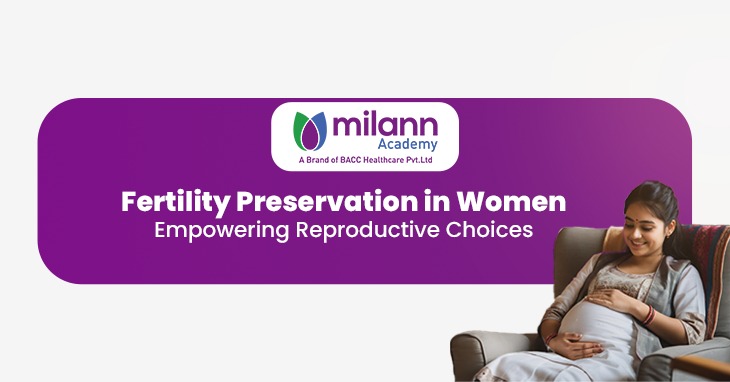


In recent years, the concept of fertility preservation has gained remarkable momentum, offering new hope and autonomy to women who wish to safeguard their reproductive potential. As women increasingly delay childbearing for personal, medical, or professional reasons, fertility preservation has emerged as a vital component of reproductive healthcare.
Fertility preservation refers to medical interventions aimed at protecting or storing gametes, embryos, or reproductive tissue for future use. It is especially crucial for women at risk of premature ovarian failure due to medical treatments such as chemotherapy, radiotherapy, or ovarian surgery, as well as for those with genetic predispositions or autoimmune conditions affecting ovarian function.
Additionally, fertility preservation is becoming increasingly relevant for women choosing to delay motherhood due to personal goals, educational pursuits, career growth, or relationship timelines, a concept commonly known as Social Egg Freezing. This option allows healthy women to freeze their eggs at a younger age when egg quality is optimal, thereby significantly improving their chances of achieving a healthy pregnancy later in life. Social egg freezing offers psychological reassurance, greater reproductive autonomy, and flexibility in family planning, making it a powerful tool for modern women seeking to balance life choices with biological limitations.
The modern woman’s reproductive timeline is evolving. Career priorities, late marriages, and medical conditions can all impact the natural fertility window. Moreover, advances in cancer treatment have significantly improved survival rates among young women, making fertility preservation an essential part of comprehensive cancer care.
This integration of reproductive planning into cancer management forms the foundation of Oncofertility, a multidisciplinary field that bridges oncology and reproductive medicine. Oncofertility focuses on helping cancer patients preserve fertility before undergoing treatments such as chemotherapy, radiotherapy, or bone marrow transplantation, which can severely damage ovarian reserve. It involves timely counseling, rapid ovarian stimulation protocols, and close coordination with oncologists to ensure that fertility preservation does not delay essential cancer therapy. As survival rates improve, oncofertility ensures that quality of life including future parenthood remains a central part of cancer care.
By intervening early, clinicians can help women retain their ability to conceive in the future, transforming fertility preservation from a niche procedure to a proactive healthcare decision.
The most widely used and successful methods include:
Fertility preservation requires careful counseling, timely intervention, and multidisciplinary collaboration between oncologists, reproductive specialists, and embryologists. Assessing ovarian reserve, tailoring stimulation protocols, and coordinating with cancer treatment timelines are key to optimizing outcomes.
Early referral and patient education remain the cornerstones of success, ensuring that women make informed decisions about their reproductive future.
At Milann Academy, we believe that fertility preservation represents the intersection of compassion, innovation, and clinical excellence. To equip healthcare professionals with the necessary expertise, the academy offers a range of advanced training programs, including:
We use cookies and IP addresses to improve site performance and understand user interests. This data does not personally identify you unless you voluntarily provide information. Third-party advertisers may also use cookies.
OKPrivacy Policy